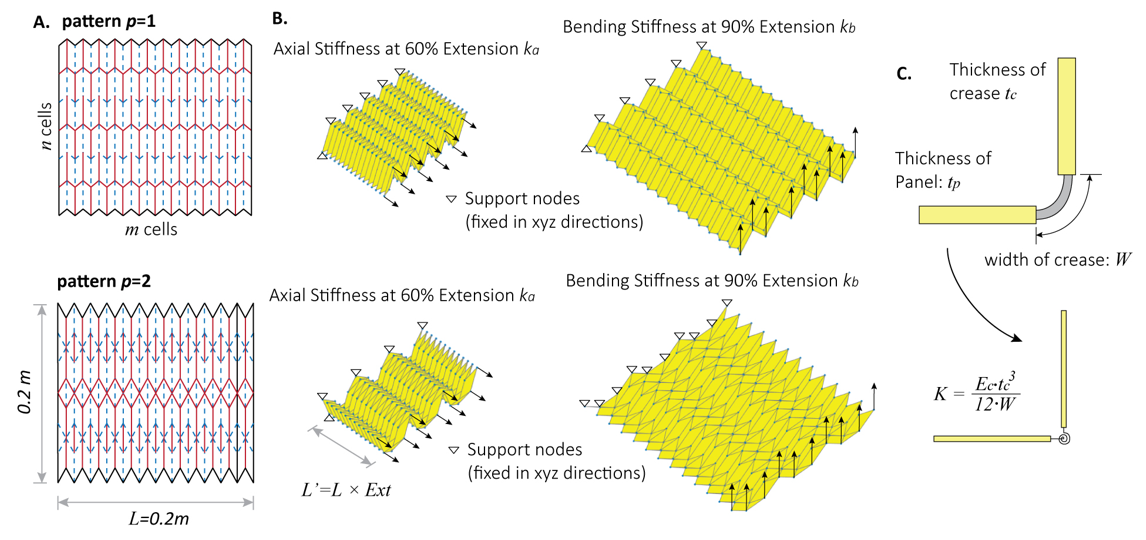Harnessing Interpretable Machine Learning for Holistic Inverse Design of Origami
This work harnesses interpretable machine learning methods to address the challenging inverse design problem of origami-inspired systems. We show that a decision tree-random forest method is particularly suitable for fitting origami databases, containing both design features and functional performance, to generate human-understandable decision rules for the inverse design of functional origami. First, the tree method is unique because it can handle complex interactions between categorical features and continuous features, allowing it to compare different origami patterns for a design. Second, this interpretable method can tackle multi-objective problems for designing functional origami with multiple and multi-physical performance targets. Finally, the method can extend existing shape-fitting algorithms for origami to consider non-geometrical performance. The proposed framework enables holistic inverse design of origami, considering both shape and function, to build novel reconfigurable structures for various applications such as metamaterials, deployable structures, soft robots, biomedical devices, and many more.
PDF Abstract
